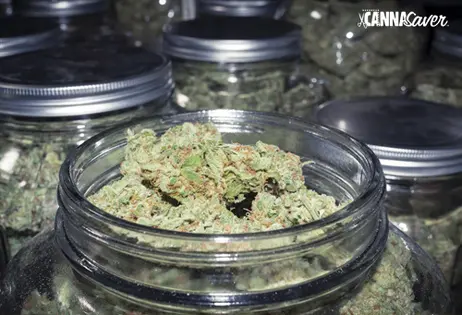
A Guide to the Different Types of Wax Dabs: What They Are and Why You Want Them
Posted by CANNASaver on Friday, 19 November 2021 in Canna Blog - Latest News
A Guide to the Different Types of Wax Dabs: What They Are and Why You Want Them
As research into cannabis accelerates, thanks to changing public sentiment and subsequent legislation, companies are not only discovering new compounds, properties, and uses for this amazing flora, but they’re also finding new and exciting ways to process it for consumption, including various types of wax dabs.
What Are Wax Dabs?
Although concentrates are thought to have been around since about the 1940s and dabs were first invented back in the ‘70s, this type of consumption remained relatively niche for decades. This was perhaps because dabs are considered difficult and potentially dangerous to produce, depending on the form of extraction used.
Today, concentrates are considered to be an ideal way to enjoy the many benefits that cannabis has to offer in an incredibly potent, cost-effective way.
Of course, there are a lot of weed concentrates to choose from, including distillates, oils, live resin, caviar, crystalline, wax, and more. There are also several different types of wax dabs.
If you’ve heard of dabbing and you’re interested in giving it a try, here’s what you need to know to make an informed decision.
What is Dabbing?
Even if you’re already familiar with other forms of cannabis consumption, such as smoking flower, ingesting tinctures, or sampling a wide range of edibles (candies, gummies, chocolates, baked goods, and even beverages), you might not have a good understanding of what dabbing entails.
It starts with several different types of wax dabs, which can range from viscous oils to sticky sugar wax to creamy budder, brittle crumble, and hard shatter.
If you know anything about cannabis plants, you know that the buds are covered with trichomes, which are tiny, crystalline structures that contain the hundreds of cannabinoids and terpenes the plant is known for.
Dabs are concentrates created by extracting compound-laden oils from the trichomes using a wide array of processes.
Common extraction methods involve the application of heat and pressure, washing in a water and ice bath, or via chemical processes involving solvents, like CO2 or butane, for example.
Butane processing — used to create butane hash oil (BHO) — is among the most popular methods and is often used to create a range of wax dabs. The resulting substances contain incredibly concentrated and potent levels of cannabinoids, like psychoactive THC and terpenes.
Whereas flower might contain about 10-20% THC, depending on the strain, dabs could have as much as 80% (sometimes more). This means that only a very small amount needs to be heated in a dabbing rig, creating vapors that are inhaled, in order to get the same effects of smoking a significantly higher volume of flower, for example.
The Benefits of Dabbing
Before you start exploring the wide world of wax dabs, you need to understand that concentrates are incredibly potent. A little goes a long way!
You should start with very small amounts until you understand the effects that dabbing will produce for you. Wax dabs deliver an intense experience you may not be prepared for, so it’s always best to start low, go slow, and work your way up to your desired effects.
When you exercise caution and choose safe, tested products, you will likely enjoy several benefits with dabbing. First and foremost, you’ll get a lot of bang for your buck. Dabs may seem like they’re expensive compared to flower — especially for the small volume you receive — but because of their elevated potency, you’re sure to find that you get more for your money.
In addition, you can get the same experience as smoking a blunt from a tiny inhale of vapor. It’s much quicker and easier than smoking, and you’ll enjoy immediate and substantial effects, such as relief, relaxation, and/or euphoria, depending on the product.
If you’re worried about the potential health concerns and the social stigma of smoking, you want something more potent than edibles, you’re seeking fast, cost-effective options for relief, or all of the above, wax dabs could be a solution worth exploring.
The next step is understanding what the different types of wax dabs are and what sets them apart from one another.
Common Types of Wax Dabs
There are several forms of concentrates to choose from, but if you want to try dabbing, wax is your best option. Powdered kief or dry hash, for example, is not ideal for use with a dabbing rig, as getting it onto the tiny nail to heat it is challenging, to say the least.
Wax dabs come in a range of consistencies, from thick liquids to hard sheets. It’s always best to try different products to see which you like.
Here’s a quick rundown of the different wax dabs and what makes each one unique.
Oil Dabs
Cannabis oils may be consumed in a number of ways, depending on how they are extracted and refined. These viscous substances can be used for vaping, turned into tinctures that you can consume sublingually or simply ingest, or made into oil dabs, which are a bit thicker and not ideal for vaping.
One of the most common forms of extraction is a chemical process using butane, which produces concentrates of great potency. It also preserves terpenes, unlike some other forms of extraction.
The instrument-grade butane used for this process is purified, pressurized, and delivered at extremely low temperatures, gently separating the oils from the plant.
When the process is complete, any residual butane is purged from the oil to create a safe, pure product that contains concentrated cannabinoids, along with all of the terpenes that deliver the aroma and flavor of the plant — not to mention the full entourage effect.
Another reason this method of extraction is so popular is that it creates opportunities for wax dabs of different consistencies, whereas some other methods are more limited in what they produce.
In addition to BHO, CO2 and propane are other forms of solvent extraction. There are also several forms of solventless extraction (dry-sifting, freeze-drying, ice water bath, a combination of heat and pressure, and so on). Solvent extraction tends to generate the purest, most potent products.
Sugar Wax Dabs
When you see sugar wax, you’ll understand how it got its name. The consistency is very much like mixing a small amount of water into a pile of sugar crystals. It is much like a sugar scrub you might use on your body, where the sugar is wet, but granular, rather than dissolved.
Although it is mostly liquid, it is very thick and sticky. This makes it great for dabbing, as it’s easy to place a small amount on the nail head for heating.
Sugar wax is most commonly made via chemical extraction (BHO), like many other types of cannabis wax.
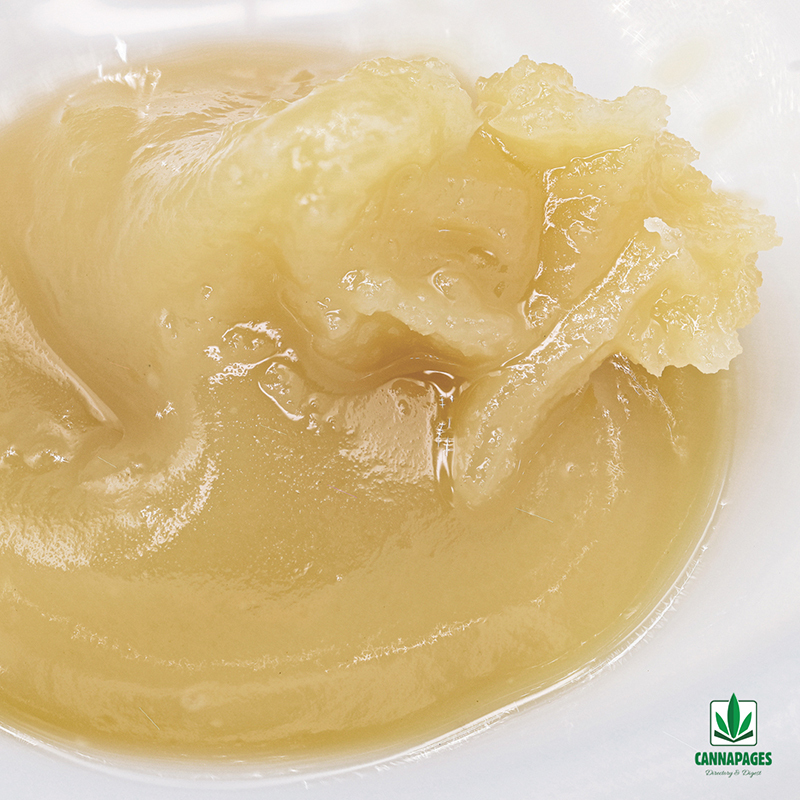
Budder Dabs
Budder is among the most popular forms of wax because of its smooth, creamy consistency, often compared to butter. It’s not quite as sticky as sugar wax, which makes it a bit easier to work with, particularly where portioning is concerned. However, it will still stay put when you apply it to the nail in your dabbing rig.
Budder is sometimes confused with similarly-named “badder.” While the two are actually very alike, badder is slightly more liquid.
How can you tell the difference? While budder essentially holds its shape, like cake frosting, badder is looser and it will slowly spread.
There are many shades of wax between viscous oil and hard shatter, and budder and badder are just two of the in-between consistencies.
Crumble Dabs
Also made from the BHO method of extraction, crumble is far less wet and sticky than some other types of wax. As you can imagine, it gains its moniker from a drier, more brittle consistency than creamy budder.
Crumble is not entirely dry like a powder, though. It still retains some moisture, making it similar to a crumbly cheese, like feta, cotija, or goat cheese.
In other words, you can easily flake it apart into smaller pieces, but the crumbled bits themselves will more or less hold together.
While budder is often considered to be the happy medium between wet products like oil and drier products like crumble, you may find the dry end of the wax spectrum easier to work with.
It all depends on your personal preferences, which is why it’s a good idea to try different types of wax to discover what works best for you.
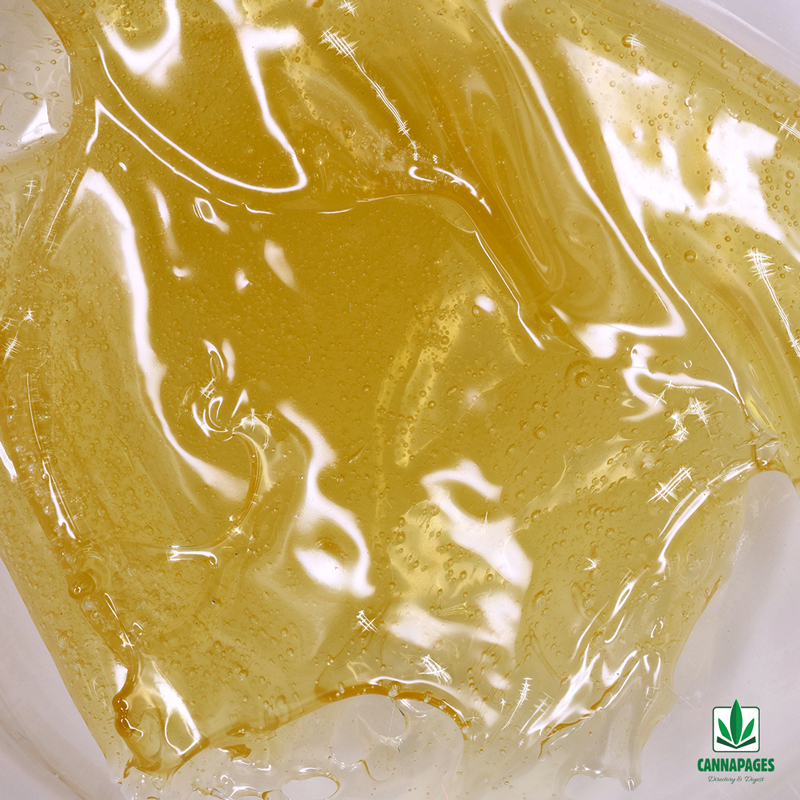
Shatter Dabs
This BHO product is hard and brittle, like spun sugar, although it’s most often compared to a sheet of glass. It’s called shatter because you can break it into pieces, either by snapping off a corner or simply smashing it.
Shatter is smooth, solid, stable, and easy to store, which makes it ideal for anyone who plans to make their supply last for a while. Although it’s not quite as easy to dab as budder or stickier products, it does have the distinction of being among the purest forms of concentrate available.
With so many types of wax dabs on the market and so many appealing benefits associated with dabbing, there’s no reason why you shouldn’t consider giving dabs a try. Just make sure to start slow if you’re new to dabbing so that you can ensure a positive and enjoyable experience!


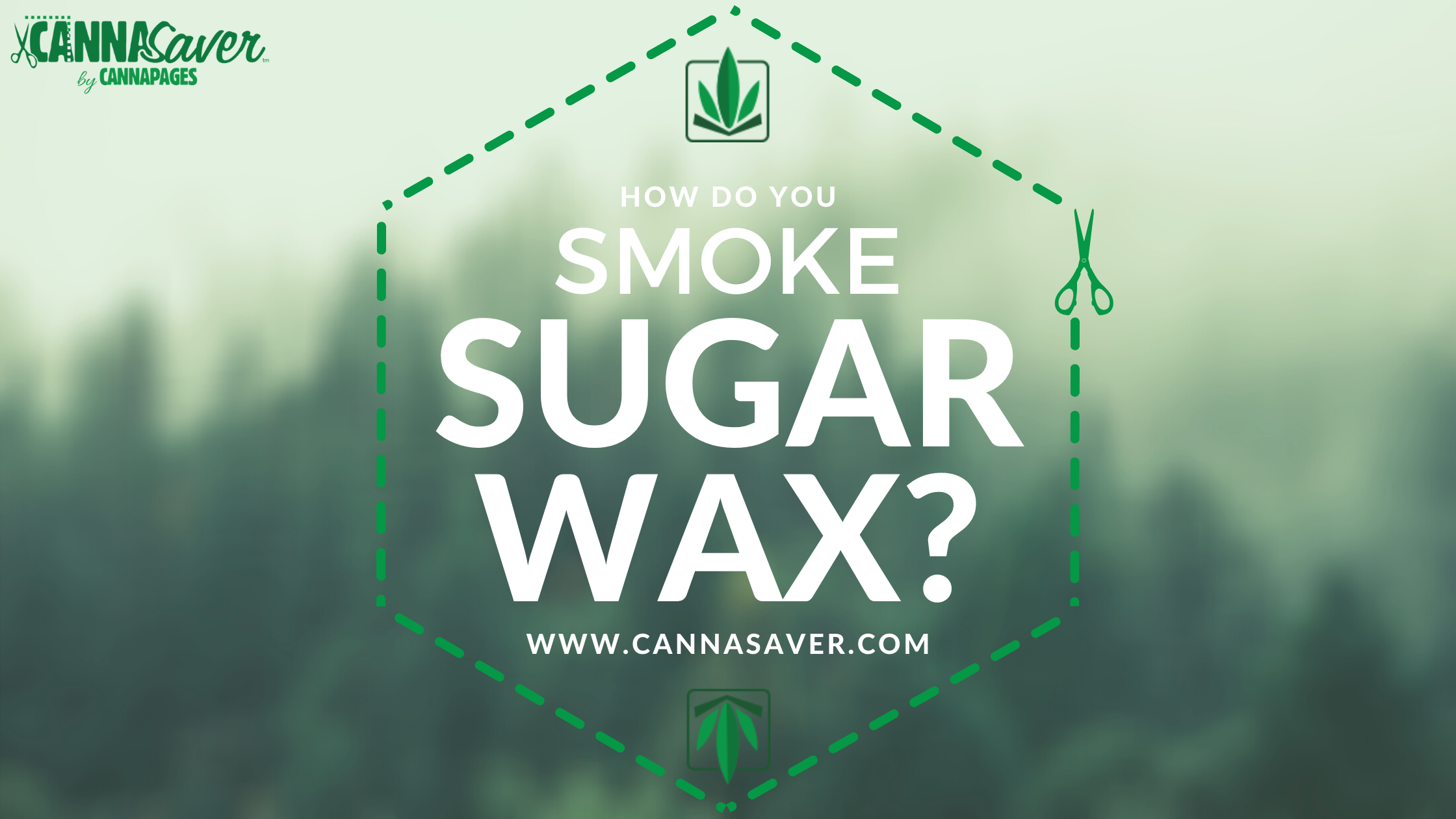
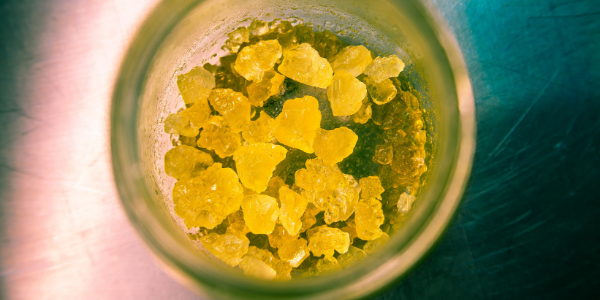
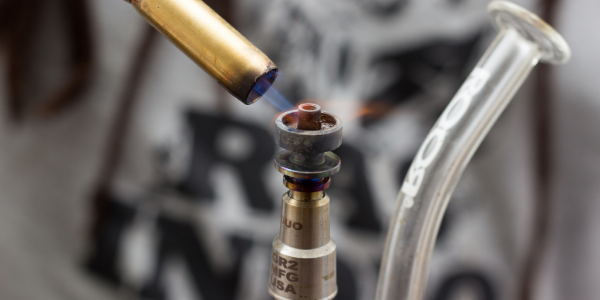
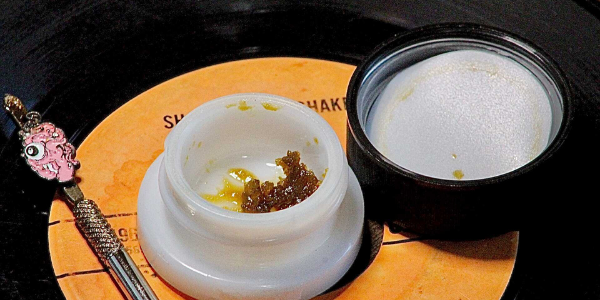
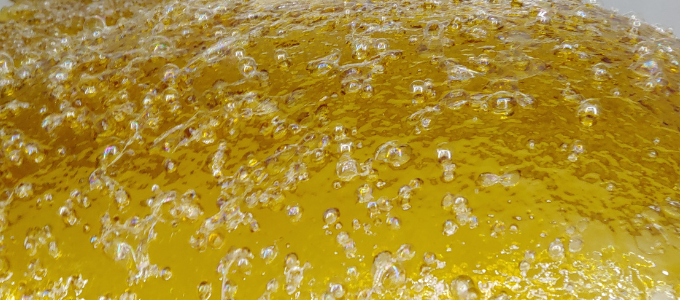
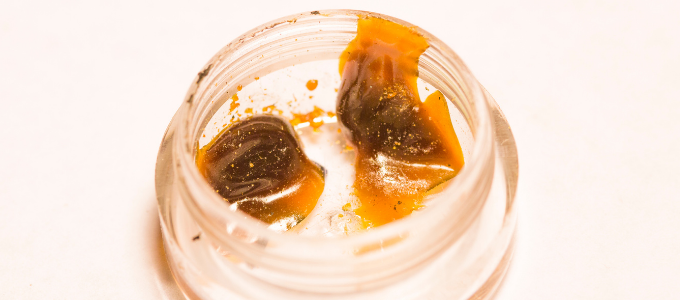
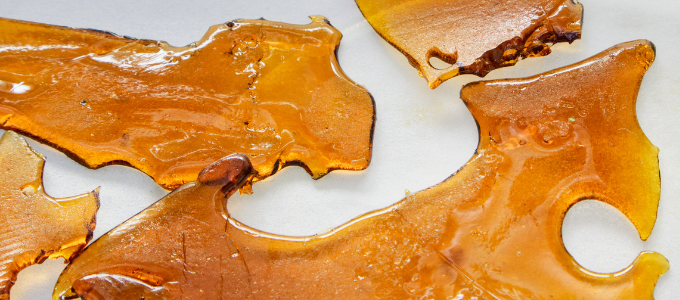



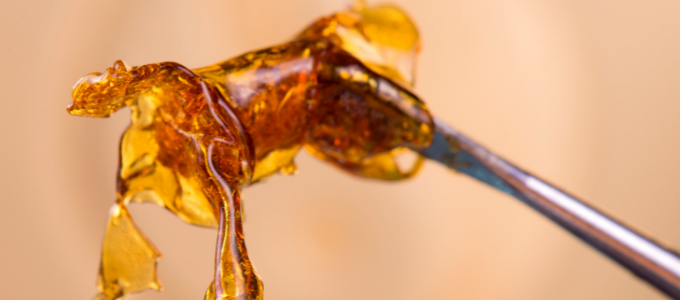
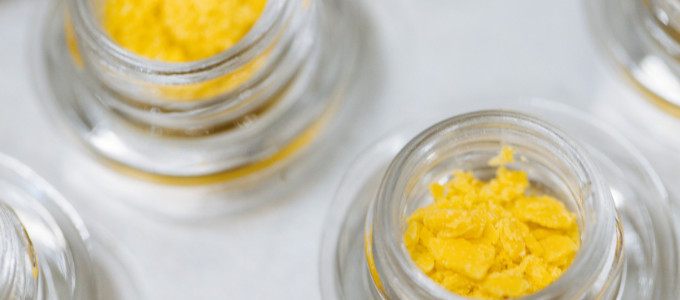
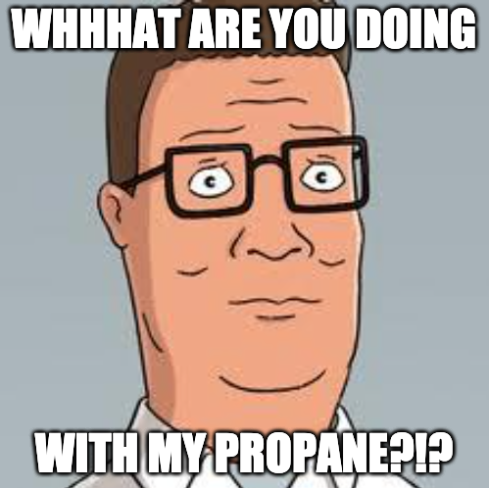
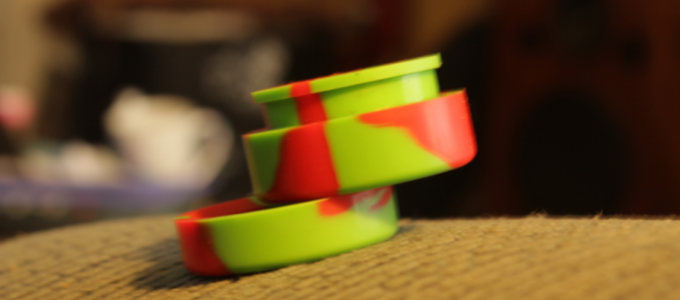
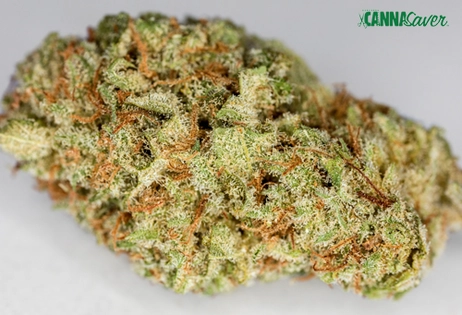
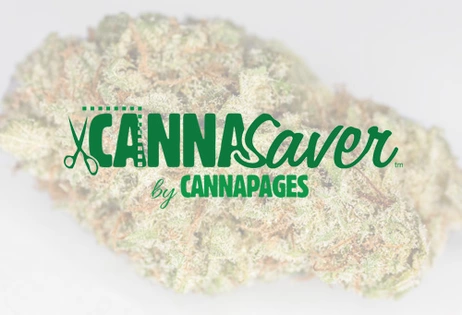





.png)
